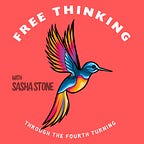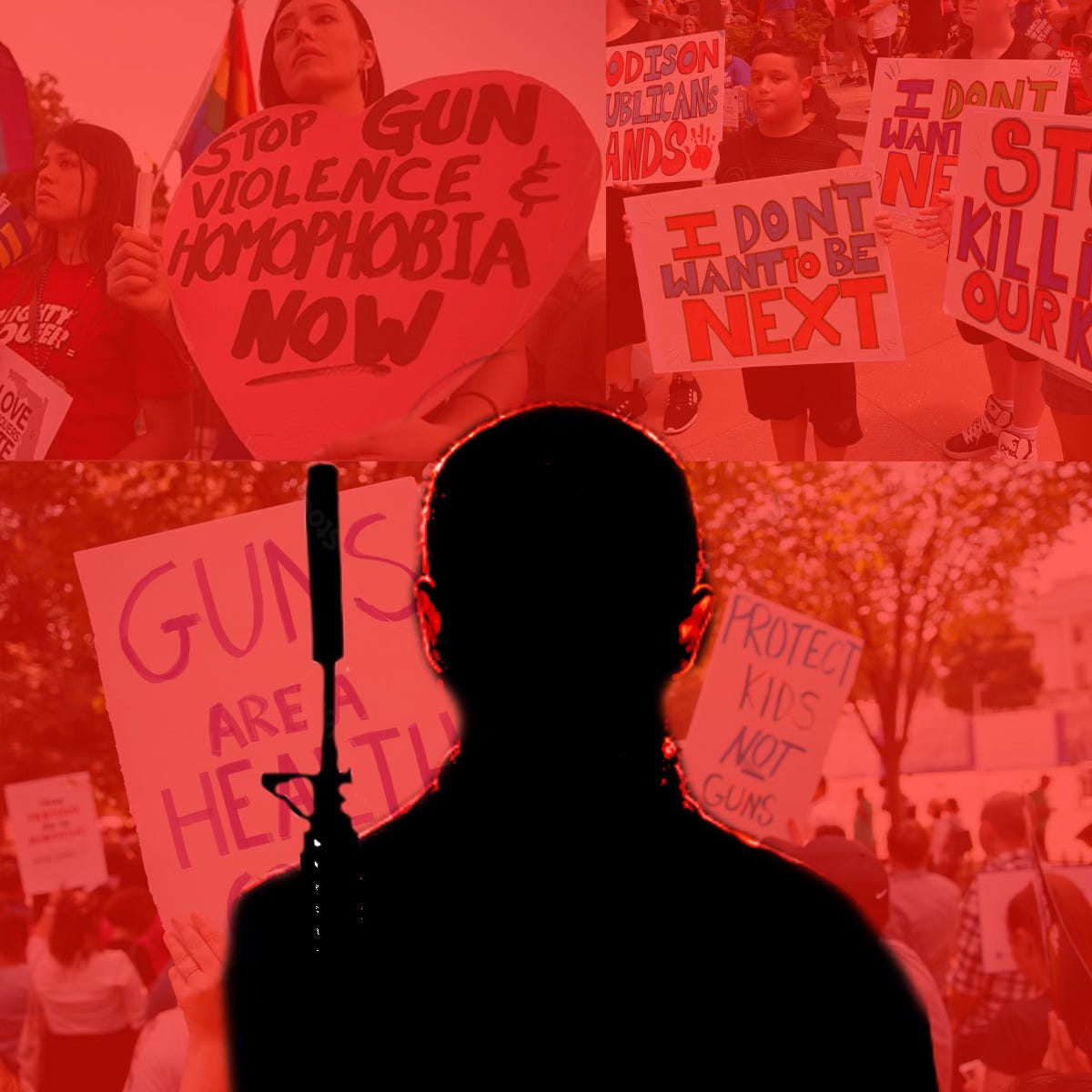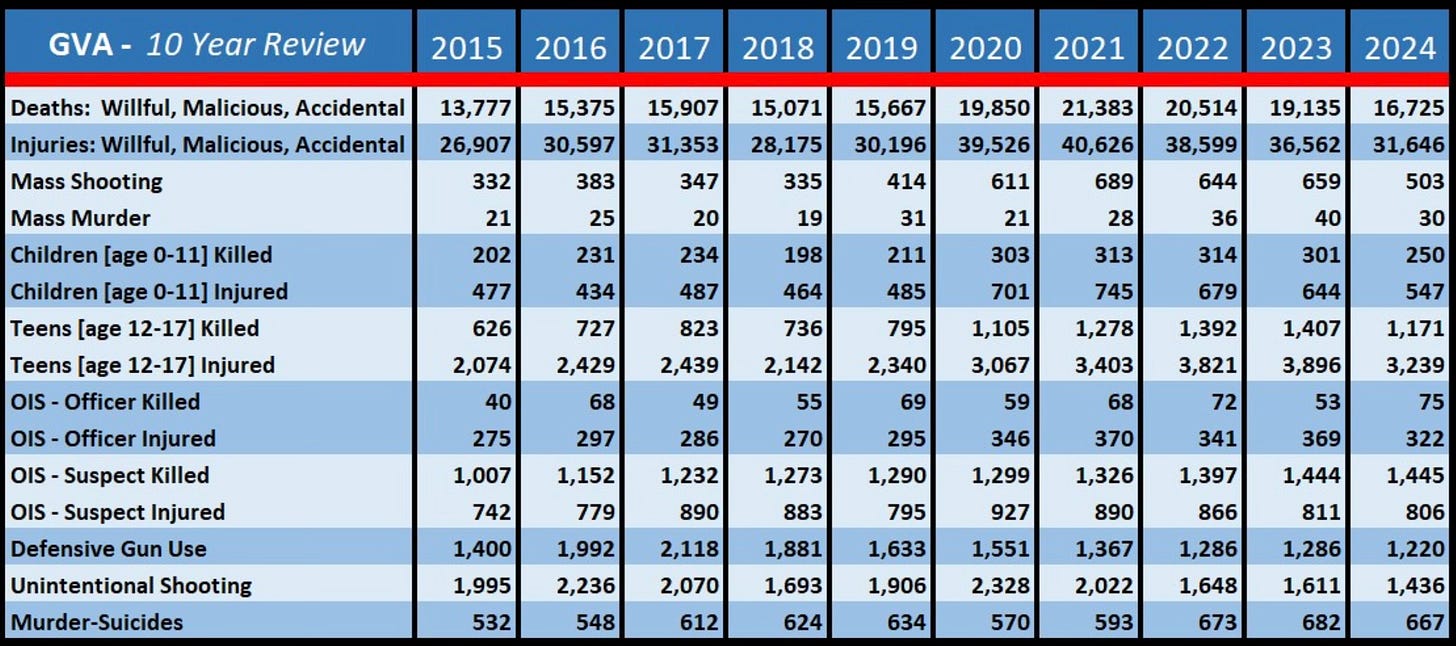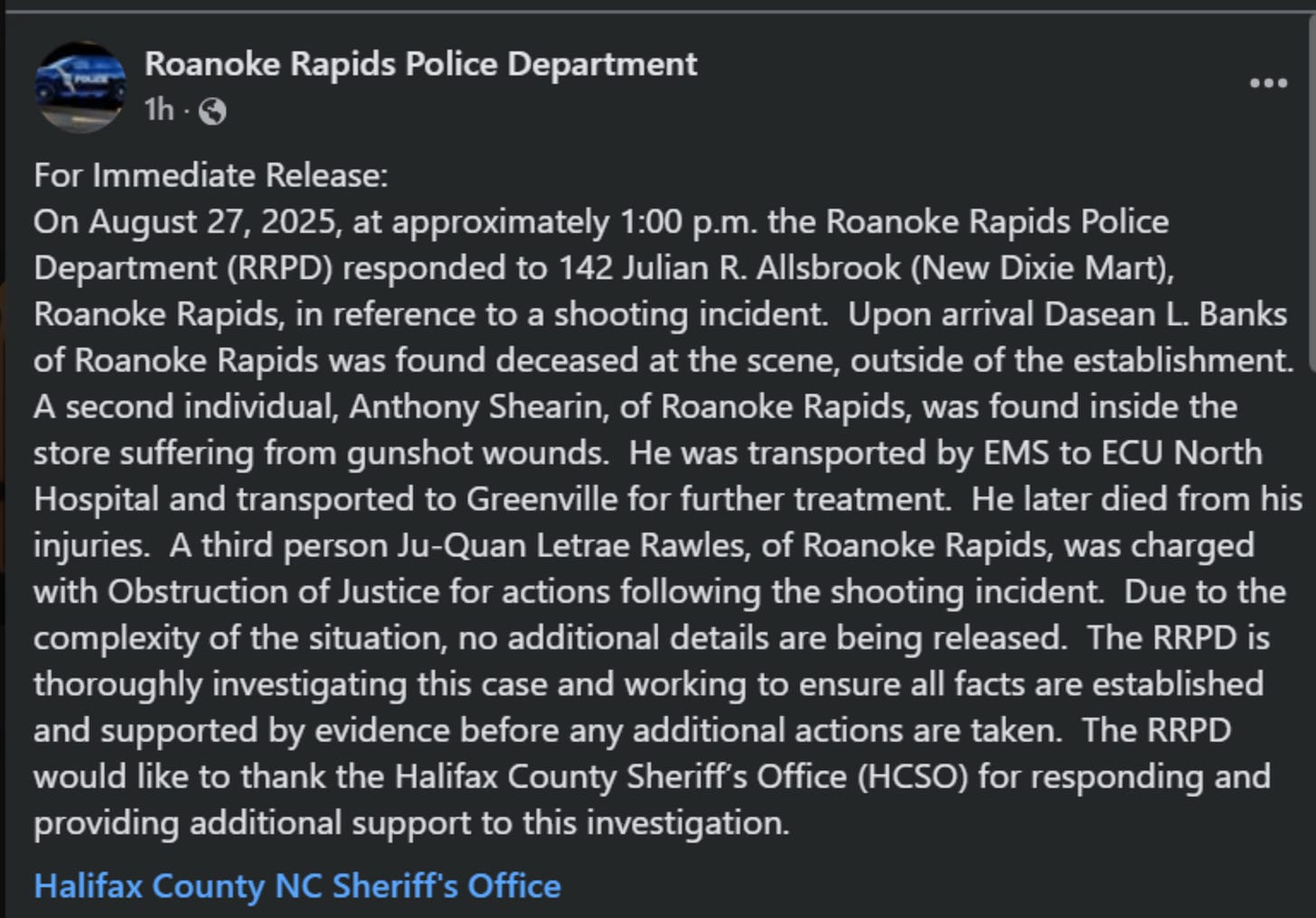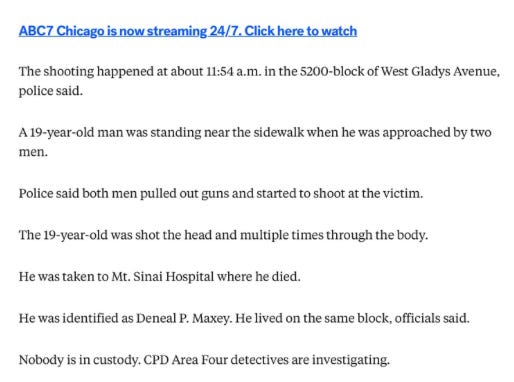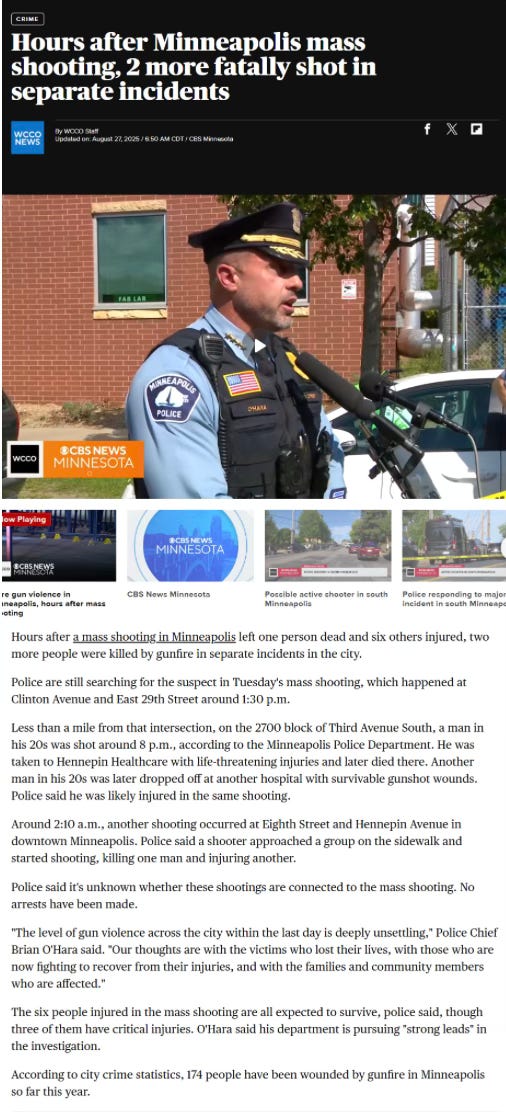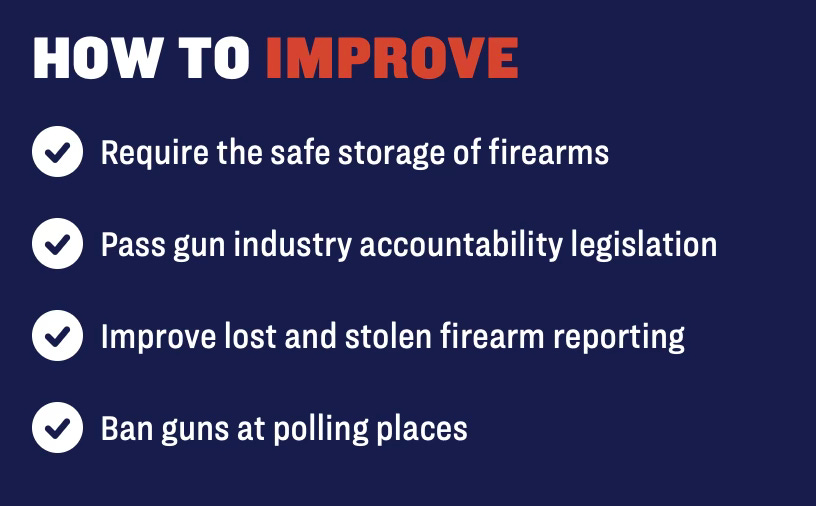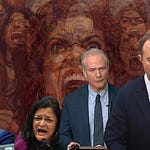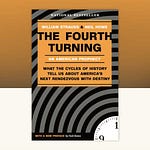As a lifelong Democrat, I always thought the problem of gun violence was easy to solve. Just get rid of the guns. It was one of the most important issues for us as Bill Clinton rallied voters to the polls in 1992. But back then, it wasn’t mass shootings that we worried about. It was handguns.
Just look at this scene in Aaron Sorkin’s The American President, released in 1995, where Michael Douglas has to bury protecting the climate to pass a weapons bill, but by the end, he realizes he doesn’t have to sacrifice anything. He can and will get both.
Four years later, Eric Harris and Dylan Klebold would become famous by shooting up Columbine High School with illegally purchased weapons. That led to the renewal of the now-expired 1994 Assault Weapons Ban originally implemented after Patrick Edward Purdy killed five children at an elementary school in Stockton, California, in 1989.
We had a joke back then called “going postal,” referring to the same kind of person who would open fire on post offices or other office buildings. It seemed like men reacted violently to being rejected, either by a job or a woman. School shootings were rare. But Columbine hit differently than any tragedy that came before it.
It wasn’t just the crime itself; it was the pleasure the shooters took in carrying it out, performing for the security cameras, the casual cruelty, and later, how they became subversive icons. All of these years later, many of our early theories about them turned out to be wrong. They weren’t really bullied. For them, it was more about the thrill of killing and gaining fame for it.
By 1999, two significant changes had occurred in American society. The 24-hour news cycle, thanks to the O.J. Simpson trial, and the rise of the internet, which could give us our news even faster. However, it did something else as well. It allowed ordinary people to become famous overnight. That’s still true. Anyone can get famous for anything. Mass shooters also have their influencers and platforms.
But even more importantly, like the Columbine shooters, they are all caught up in the romance of building a mythology behind their planned shootings, their grand statements against society as they carry out their evil acts. They seem to have empathy for other shooters. They want to be like them. They want to be feared and remembered.
The more evil the deed, the greater the myth. The endgame always seems to be suicide, go out with a bang. Solving that problem, understanding it, trying to get ahead of it, proved too difficult, so we pivoted to the guns. Always the guns. Just get rid of the guns, and the problem will be solved.
Like these TikTokers:
I used to believe that. I also demonized people who carried them, and it was an easy excuse to blame the other side. What else is new? At least we want to do something about it, I would say. For this reason, I began studying mass shooters. I thought that if I could identify the one thing they had in common, maybe we could find a way to reach them before they decide to pick up a gun.
Every time I brought it up to anyone I knew on the Left, I would always get the same answer: it’s the guns. Take away the guns, solve the problem. They didn’t want to talk about anything else.
If you lived through the Oklahoma City bombing and 9/11, it seemed obvious that if people want to kill, there are other ways. Just look at suicide bombers, or people who drive trucks through crowds, or go on stabbing sprees. No, guns just made it easier, but taking them away is not only impossible, it doesn’t solve the problem.
In my research, I came across a site called GunViolence.org. They lay out just how rare mass shootings are compared to the rest of the shootings in America. I was shocked when I actually looked at the numbers.
Here is their ten-year review:
Gun deaths are part of the everyday reality for many working-class families living in high-crime cities, and yet, in the post-George Floyd America, even talking about “Black on Black” crime is strictly verboten. It has to be the guns.
On August 27, the same day as the most recent shooting in Minneapolis at a Catholic school, several other people lost their lives to gun violence.
Like this:
And this:
And this - a man shot in his home in Mississippi.
Two more:
How about this shooting, captured on Facebook Live and viewed by millions in Chicago:
The same party that thinks guns are the problem have not only refused Trump’s help to bring in the National Guard to clean up crime, but have also attempted to “defund the police,” called all police “racists” all through 2020, and continue to ignore crime in cities like Los Angeles where all of the products have to be locked away and criminals aren’t even prosecuted for theft under $1000.
There is no question that the Democrat brand lately stands for defending and protecting criminals and crime rather than protecting citizens. They won’t talk about how residents in DC are relieved to be able to walk on the streets and feel safe at night.
This latest shooter, Robert/Robin Westman, bought his guns legally. Giffords.org gives Minnesota a grade of “B.” Yet, here are their suggestions to improve that grade:
None of these improvements would have stopped Westman from shooting his gun through the window while Catholic students were praying on the second day of school. He did it because he knew that they were too trusting and that there would be few barriers in his way.
For a guy like Westman, or any of the latest trend of trans and nonbinary perpetrators of violence, wearing a mask of a woman offers an extra layer of protection, but it also reveals someone who doesn’t want to be who he is in a society that no longer has any use for men. Not only won’t they look into it, but their greatest fear coming out of the event was whether they would offend the transgender community.
You see how easy it is to blame the guns? Then, you never have to look at anything else, uncomfortable things, things no one can even talk about.
And for those complaining that the Republicans are “politicizing a tragedy,” know this: all the Democrats have done for the last 30 years is politicize tragedies. Never let a crisis go to waste. And the answer is always the guns.
Because “it’s the guns,” we never had to face what we’d done to contribute to making this country worse. We never had to confront what the feminist movement had done to men. Listen to how these women talk on TikTok. It isn’t just that men have fled the Democratic Party. It’s that they’ve been abandoned by them and, worse, they’ve been demonized.
I am not excusing violence, certainly not mass murder, certainly not of children. But how can we not even talk about what has happened to men over the past 20 years that has brought them to the point where so many of them feel like there is no place for them in society, that they are loathed at best, invisible at worst?
And if we don’t understand them, if we don’t see them, if we don’t know how to reach them, how can we possibly stop them? Oh, don’t worry, we’ll just take away the gun. That will solve the problem.
We never had to confront what psych meds might have done to potential mass shooters. We weren’t even allowed to bring it up lest we offend those afflicted with mental illness. At least now, under Trump, we have RFK, Jr. to take a look, finally, at whether or not these drugs had any impact on mass shootings.
After the massacre at Sandy Hook, I realized we lost the gun debate. Adam Lanza’s guns were locked up. But he stole them, shot his mother in the face, and went on a rampage, where he would later end his life.
I knew that wasn’t about the guns. It couldn’t be. So what else was going on? How can we prevent this problem from happening again? The guns? Seriously? That’s all you got? Yes, that’s all they got. Even now.
But what I know now is that we have to do the other thing. We have to pivot to protecting children — schools, churches, parks, restaurants. We must ensure our buildings are shooter-proof, just as we make sure they are earthquake-proof. Debating about guns for 30 more years isn’t going to do anything.
And then, we have to have a serious conversation about the deeper issues at play, not just with the most recent shooting, but with all mass shootings. How is it that they become celebrities? Why do men feel left behind? Why do they think they need something like this to be valued? Why did this shooter and so many others of late feel they had to transition or identify as something other than a man to be seen and valued? What can we do as a society to help them?
We live in a take-no-prisoners new world of algorithms and isolation. It will likely disrupt our species in ways we can’t even fathom. But one thing I know for sure is that to make the conversation only about guns is to be unprepared for everything that’s coming next.
//


